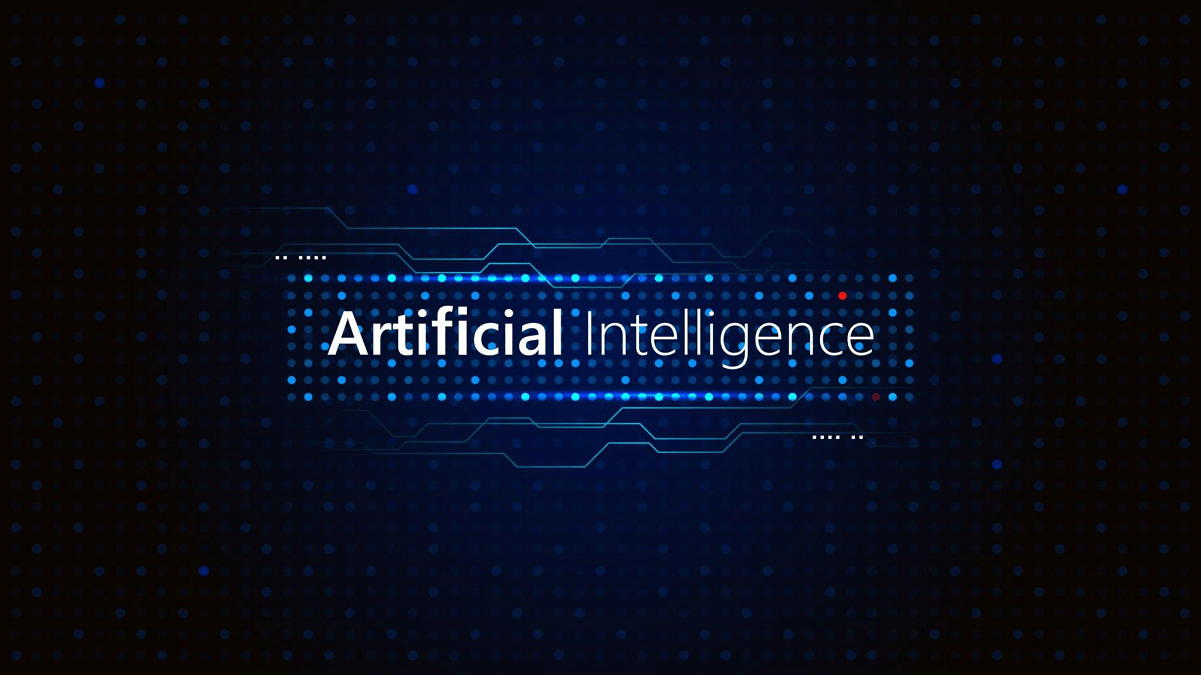How to become an artificial intelligence engineer ?

In this era of technological advancements, the demand for artificial intelligence (AI) engineers is skyrocketing. The field of AI presents exciting opportunities for those with a passion for innovation and problem-solving. If you’ve ever wondered how to become an artificial intelligence engineer and embark on a thrilling career at the forefront of cutting-edge technology, you’ve come to the right place.
In this blog, we will guide you through the steps to becoming an AI engineer, with a focus on the Indian context. From acquiring the necessary skills to understanding the salary prospects, let’s unlock the door to an exciting journey into the world of AI engineering.
How to Become an Artificial Intelligence Engineer :

Becoming an artificial intelligence engineer requires a combination of technical skills, education, and practical experience. Here are the key steps to embark on this career path:
1. Gain a Strong Foundation in Mathematics and Programming :
To excel as an AI engineer, it’s crucial to have a solid understanding of mathematics and programming. Mathematics forms the backbone of AI algorithms and models, while programming skills allow you to implement those algorithms effectively.
Start by mastering the fundamentals of mathematics, including linear algebra, calculus, and probability theory. These mathematical concepts are fundamental to understanding machine learning algorithms and their underlying principles.
Simultaneously, develop a strong programming foundation in languages such as Python, Java, or C++. These languages are widely used in AI development and provide a versatile toolkit for building AI systems.

2. Pursue Relevant Education :

Obtaining a formal education in computer science, data science, or a related field is highly recommended for aspiring AI engineers.
A bachelor’s or master’s degree provides a comprehensive understanding of algorithms, data structures, statistics, and machine learning. Look for programs that offer specialized AI courses, covering topics such as neural networks, natural language processing, computer vision, and reinforcement learning.
These courses will equip you with the necessary theoretical knowledge and practical skills required for AI engineering.
3. Specialize in Artificial Intelligence :
While pursuing your education, it’s essential to focus on courses or certifications that specifically cover artificial intelligence and machine learning. Online platforms offer a wide range of AI-related courses and specializations taught by industry experts and renowned academics.
Dive deep into the concepts of AI, study different machine learning algorithms, and learn how to train models using real-world datasets. Gain hands-on experience with popular AI frameworks and libraries such as TensorFlow and PyTorch.
This specialization will give you a competitive edge in the job market and demonstrate your expertise in AI engineering.
4. Build a Strong Portfolio :

Practical experience is invaluable in the field of AI engineering. As you progress in your AI journey, work on projects that allow you to apply AI algorithms and techniques to solve real-world problems.
Seek out opportunities to collaborate with researchers, participate in Kaggle competitions, or contribute to open-source AI projects. Building a portfolio of completed projects showcases your skills, creativity, and ability to tackle complex AI challenges.
Highlight your contributions, the outcomes achieved, and any unique approaches or innovations you applied. A strong portfolio not only demonstrates your technical proficiency but also shows your passion for AI and your ability to deliver tangible results.
5. Stay Updated with the Latest Developments :
AI is a rapidly evolving field, and staying updated with the latest trends and technologies is essential.
Follow renowned AI researchers, subscribe to AI-focused blogs and newsletters, and actively engage with the AI community. Attend AI conferences, workshops, and webinars to learn from industry experts and gain insights into emerging AI applications.
By staying at the forefront of advancements in AI, you can adapt to new techniques, tools, and frameworks as they emerge, keeping your skills relevant and in demand.
How to Become an Artificial Intelligence Engineer in India

If you’re aspiring to become an AI engineer in India, here are a few additional steps to consider:
1. Explore AI Research Institutes and Labs :
India boasts several renowned research institutes and laboratories that focus on AI and machine learning. Institutions like the Indian Institute of Technology (IIT), the Indian Statistical Institute (ISI), and Indian Institute of Science (IISc) have dedicated research centers and departments specializing in AI.
Explore opportunities to work or collaborate with these institutions to gain valuable research experience and exposure to cutting-edge projects. Many of these institutes offer postgraduate programs and research fellowships specifically in AI, providing an excellent platform to deepen your knowledge and network with experts in the field.
2. Join AI-focused Communities and Networks :

India has a vibrant AI community, with various forums, meetups, and professional networks dedicated to AI enthusiasts.
These communities provide opportunities to connect with like-minded individuals, engage in discussions, share knowledge, and learn from experts. Platforms like Meetup, LinkedIn, and Kaggle host AI-centric groups where you can interact with AI practitioners, researchers, and industry professionals.
Participating in online discussions, attending webinars, and networking events can expand your professional circle, expose you to diverse perspectives, and open doors to collaboration and career opportunities.
3. Engage in Hackathons and Competitions :
Participating in AI-focused hackathons, competitions, and coding challenges can provide invaluable learning experiences and help you showcase your skills to potential employers.
These events often present opportunities to solve real-world problems using AI techniques and algorithms. Organizations like Analytics Vidhya, DataHack, and HackerEarth regularly host AI hackathons and data science challenges that allow participants to tackle industry-specific problems.
Engaging in such competitions not only sharpens your technical skills but also demonstrates your ability to apply AI concepts to solve practical problems, which is highly valued by employers.
4. Seek Internship Opportunities :

Internships with AI-focused companies or research institutions can provide hands-on experience and industry exposure. Look for internship programs that allow you to work on AI projects, collaborate with experienced professionals, and learn from mentors in the field.
Many startups and established companies in India offer AI internships, providing you with the opportunity to work on cutting-edge AI applications and gain practical insights into the industry. Additionally, internship experiences can enhance your resume and make you more attractive to potential employers when seeking full-time positions.
5. Stay Abreast of Industry and Policy Developments:
India’s AI landscape is evolving rapidly, with various initiatives and policies aimed at fostering AI innovation and adoption. Stay updated with the latest industry trends, government initiatives, and policy changes related to AI.
Keep track of industry-specific use cases and advancements in areas such as healthcare, finance, agriculture, and education, as these sectors are experiencing significant AI-driven transformations.
Familiarise yourself with India’s AI-related policies and regulations to understand the ethical and legal considerations associated with AI implementation.
Artificial Intelligence Engineer Salary in India
The salary prospects for artificial intelligence engineers in India are highly promising. With the growing demand for AI talent, organisations are willing to offer competitive compensation packages.

While salaries may vary depending on factors such as experience, location, and the organisation itself, AI engineers in India can expect a starting salary ranging from INR 8 to 15 lakhs per annum with an average salary of 9.5 LPA. As you gain experience and expertise, your earning potential can significantly increase.
Related : Artificial Intelligence Vs Cyber Security – Which Career is better?
Conclusion:
Becoming an artificial intelligence engineer opens doors to an exciting and dynamic career at the forefront of technological innovation. By following the steps outlined in this blog, you can embark on a fulfilling journey to become an AI engineer, contributing to cutting-edge research, developing intelligent systems, and solving complex problems.
In India, the AI industry is thriving, presenting numerous opportunities for growth and advancement. So, equip yourself with the necessary skills, stay updated with industry trends, and be prepared to make a remarkable impact in the field of artificial intelligence.
The world of AI awaits your unique contributions, and the possibilities are boundless!
Frequently Asked Question
AI Engineering can be challenging, but it ultimately depends on your dedication, passion, and willingness to learn. It requires a solid foundation in mathematics, programming, and computer science concepts. With perseverance and the right resources, you can develop the necessary skills and knowledge to excel in AI Engineering.
While it’s unlikely to become an AI expert in just three months, you can certainly gain a basic understanding of AI concepts and techniques within that timeframe. Learning AI is an ongoing process that requires continuous learning and practice. Dedicate time to studying relevant topics, completing projects, and exploring real-world applications to build a strong foundation in AI.
Yes, AI heavily relies on mathematics. Mathematical concepts such as linear algebra, calculus, probability theory, and statistics are fundamental to understanding and implementing AI algorithms. Proficiency in math helps in developing and analyzing AI models, optimizing algorithms, and making informed decisions based on data.
A career in AI can be challenging, but it also offers great opportunities and rewards. AI is a rapidly evolving field that requires continuous learning and keeping up with the latest advancements. Success in AI often demands a solid understanding of mathematics, programming, and data analysis. However, with dedication, continuous learning, and a passion for problem-solving, you can build a successful career in AI and contribute to groundbreaking innovations.
About the Author
Sonali is an accomplished Author, Content Writer, Copywriter, and Ghostwriter, known for her ability to create engaging and captivating communications. With over 11 years of experience, she has developed a diverse industry background in Education, Travel, Retail, Events, and Fashion . Quality over quantity is what she firmly believes in. At UniKakhsa, she leads a team of talented technical writers, dedicated to delivering valuable content to readers through our blogs.
 Related Posts
Related Posts
|
Offerings
|
FutureFirst
|
SmartStart
|
GradEdge
|
SelfMastery
|
|---|---|---|---|---|
|
Doubt clearing session
|
                                          |
                                          |
                                          |
                                          |
|
No of job opportunities
|
15 | 25 | 15 | 3 |
|
Course Access
|
5 Years | Lifetime | Lifetime | 5 Years |
|
Free Library Courses
|
                                          |
                                          |
                                          |
                                          |
|
Job Assurance
|
                                          |
                                          |
                                          |
                                          |
|
Language
|
English/Hindi | 5 Language options | English/Hindi | English/Hindi |
|
Live classes
|
100% | 100% | 100% |                     |
|
Offline
|
                                          |
                                          |
                                          |
                    |
|
Industry Expert Sessions
|
                    |
                                          |
                    |
                    |
|
Internship (IOP)
|
                                          |
Guaranteed | Guaranteed | Based on evaluation |
|
1:1 Mentoring sessions
|
                    |
                                          |
                    |
                    |
|
Customer Support
|
                                          |
                                          |
                                          |
                                          |
|
Dedicated Program Manager
|
                    |
                                          |
                    |
                    |
|
Opt for Placement services
|
Compulsary |                                           |
                                          |
                                          |
|
Career Support
|
1 Year | 18 Months | 1 Year | 3 Months |
|
Regular assessments
|
                                          |
                                          |
                                          |
                                          |
|
Report cards
|
                                          |
                                          |
                                          |
                    |
|
Career Guidance
|
                                          |
                                          |
                                          |
                    |
|
Certificates
|
                                          |
                                          |
                                          |
                    |
|
Scholarship
|
                                          |
Available | Available |                     |
|
Trial Class
|
1 week | 1 week | 1 week |                     |
|
Outside placement
|
Paid | Allowed | Allowed | Allowed |
|
Premium Jobs
|
                    |
                                          |
                    |
                    |
